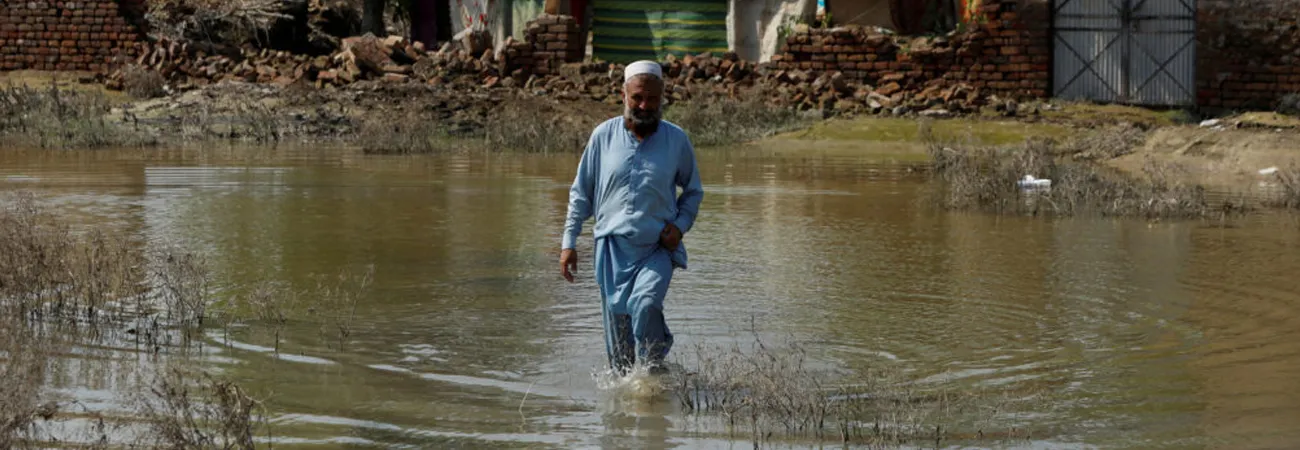i ECONOMY
The World Bank-funded Integrated Flood Resilience Adaptation Project (IFRAP) will benefit approximately 2.7 million people in selected communities in the flood-hit districts of Balochistan. The project has been designed to support and uplift the communities, which suffered immensely when floods hit the province on a massive scale in 2022, rendering people homeless as well killing their livestock and destroying their crops. The IFRAP worth $400 million will help rehabilitate the flood-hit communities with a focus on long-term resilience. The project was conceived after Pakistan managed to secure pledges of $10 billion from donors committed during the International Conference on Climate Resilient Pakistan jointly hosted by Pakistan and the UN in Geneva. The IFRAP will not only reconstruct infrastructure but also strengthen local capacities to manage future climate risks. A special steering committee has been formed for the project, comprising the federal and provincial government representatives.
According to the minutes of a recent meeting of the steering committee, the Project Director IFRAP gave a detailed briefing to the participants about the key components of the project, which include reconstruction & rehabilitation of provincial/local roads, restoration of flood protection, irrigation/drainage, water supply & sanitation, health and education infrastructure, establishment of hydro-meteorological early warning system, restoration of livestock and aquaculture infrastructure, livestock vaccination, horticulture support for farmers, high-value climate smart agriculture and agri-value chain development and internship programme for 1,000 young people. The IFRAP will provide housing reconstruction grants to approximately 35,100 homeowners to rebuild their homes following resilience standards, and livelihood grants to smallholder farmers to support livestock and promote climate-smart agriculture and other productive activities. It will also help restore essential services by rehabilitating damaged community infrastructure and facilities such as water supply, irrigation, roads and community facilities.
The project will help mitigate flood risks through a combination of resilient protection infrastructure, enhancing early warning systems, while ensuring that women have access to this system and disaster risk management information. IFRAP will restore degraded watersheds and strengthen institutional capacity at both the provincial and local levels. The key objective is to expedite the implementation of the project in order to benefit the flood-hit people. Last year, Pakistan faced an unprecedented devastation due to torrential rains and flooding in most parts of the country, affecting 33 million people and incurring economic losses of $30 billion. In the wake of the catastrophe, the government prepared 4RF (Resilient, Recovery, Rehabilitation and Recovery Framework). The 4RF document suggests effective coordination and participation among the federal and provincial governments, development partners, donors, international and national NGOs and academic and private sectors. Under 4RF, the Balochistan government designed Flood Recovery Plan, which outlines a comprehensive strategy to address the devastating impacts of the floods in the province. With a focus on mid-term priorities and close alignment with existing development plans, the plan aims to restore lives, infrastructure and livelihoods in the affected areas.
Credit: Independent News Pakistan (INP)









